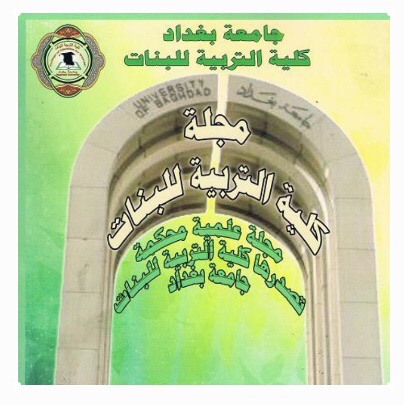A Unit Plan Based Upon The MI Theory: A theoretical study with an application Inside The Classroom
Abstract
This research basically gives an introduction about the multiple intelligence
theory and its implication into the classroom. It presents a unit plan based upon the
MI theory followed by a report which explains the application of the plan by the
researcher on the first class student of computer department in college of sciences/
University of Al-Mustansiryia and the teacher's and the students' reaction to it.
The research starts with a short introduction about the MI theory is a great
theory that could help students to learn better in a relaxed learning situation. It is
presented by Howard Gardener first when he published his book "Frames of
Minds" in 1983 in which he describes how the brain has multiple intelligences not
only one general intelligence as it was believed before.He classifies these
intelligences into six or ten intelligences as will be explained later in this research.
The next section is a unit plan which is designed in accordance with the MI
theory for teaching the simple present and the present perfect tense for the first
class students in computer department of college of sciences. This plan consists of
four activities each involves more than three intelligences which suppose to help
most of the students in the class to learn better, each using their own intelligence in
learning. In all the activities, the students are supposed to work in groups.
Activity number one is teaching the simple present tense by writing a
description of pictures taken from the net using the simple present tense.
Activity number two is teaching the present perfect tense by using a game
called: "tell us what has happened". The teacher or groups of students do something
and then the teacher asks the other students to tell what has happened.
The third activity is teaching the simple present tense by using songs which
are taken from the net and designed for teaching purposes. These songs are
followed by a cloze sheet about the song to be filled by the students using the
simple present tense.
The fourth activity is teaching the present perfect tense using the
questionnaire. Students ask and answer using the present perfect tense as the
teacher gives each group a specific theme to talk about.
presents the teacher's reaction to using the MI theory in designing the unit
plan and teaching it to the students and the students' reaction to the unit plan with the type of assessments according to the MI theory which is followed by the researcher to assess the students.

Downloads
Published
Issue
Section
License
![]()
All articles published in Journal of College of Education for Women are licensed under a Creative Commons Attribution 4.0 International License.










